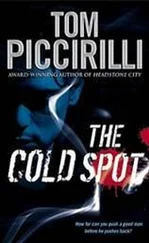A hand grasping my shoulder broke the spell.
'Sea luck!' said a voice. I looked up into a heavily bearded Norse face.
It was broad daylight, my coracle was nuzzling against the side of a small longship, and a sailor was leaning down to grab me out of the coracle.
'Look what we've got here,' said the sailor, 'a gift from Njord himself.'
'Pretty miserable gift, I would say,' commented his companion, helping drag me aboard still clutching my satchel, then sending the coracle on its way with a contemptuous kick so that the little vessel tilted and sank.
'May Odinn Farmatyr, God of Cargoes, reward you,' I managed to blurt out.
'Well, at least he speaks good Norse,' said a third voice.
My rescuers were savages. Or that is what the monks of St Ciaran's would have called them, though my word for them was different — they were vikingr, homeward bound after a season on the coast of what I later knew as Breton land. Their luck had been fair, a couple of small monasteries surprised and looted, some profitable trading for wine and pottery in the small ports farther south and now they were headed north again in their ship. They were proper seamen, so the lookout with the dawn light behind him had spotted the tiny black speck of the coracle appearing and disappearing on the gentle swells. They had rowed across to check what they had found and as they approached they had seen me sitting there, so motionless that they thought I was a corpse.
The Norse consider it propitious to rescue someone from the sea, as much for the rescuer as the rescued. So I received a kindly welcome. I was shivering with cold and they wrapped me in a spare sea cloak and gave me chunks of dried whale blubber to chew, their diet for someone who has been exposed to the cold and wet. After I was recovered, they asked me for my story and discovered that I had abundant tales to tell. This made me popular. My stories helped to pass the long hours of the homeward trip and Norsemen love a good yarn. I found myself telling my tales again and again. With each repetition I became more fluent, more able to pace the run of my narrative, to know which details caught the attention of my hearers. In short, I began to understand how satisfying it is to be a saga teller, particularly when the content of your tales has an appreciative audience. I learned that I was one of only a handful of Norse survivors from the great battle at Clontarf, so I was asked repeatedly to describe the progress of the great battle, where each man fought in the line, how each warrior had dressed for the combat, what weapons had proved best, who had said what and to whom, whether such-and-such had died with honour. And always when I came to describe how Brodir of Man had ambushed the High King and slain him in the open, though he knew it would mean his own certain death, my audience would fall silent and, as often as not, greet the conclusion of my story with a sigh of approval.
As I told the story for perhaps the twentieth time, the thought occurred to me that this might be what Odinn was intending — that I should be an honest chronicler of the Old Ways and the truth about the far-flung world of the Norsemen. Was it really Eochaid who had told me that words hold greater power than weapons? Did Senesach at St Ciaran's encourage me to learn to read the Roman and Greek scripts and write with the pen and stylus? Was it Tyrkir who showed me the cutting of runes in Greenland and taught me so much of the Elder Lore. Or were all of them really Odinn in his many disguises equipping me for my life's path?
If it was Odinn, then I am keeping his faith by writing this account, and I will describe how I travelled even farther afield in the next phase of my life and took part in events that were even more remarkable.

AUTHOR'S NOTE
THORGILS, SON OF Leif the Lucky and Thorgunna, did exist. According to the Saga of Erik the Red, 'The boy . . . arrived in Greenland, and Leif acknowledged him as his son. According to some people this Thorgils came to Iceland the summer before the Frodriver Marvels. Thorgils then went to Greenland, and there seemed to be something uncanny about him all his life.'
The events of Thorgils's life imagined here derive mostly from the Icelandic sagas, one of the great collections of world literature and widely translated, notably in the Penguin Classics. Eochaid's poem of the hermit's hut is taken from Kenneth Hurlston,
A CELTIC MISCELLANY, first published by Routledge & Kegan Paul, 1951; revised edition published by Penguin Books, 1971, reprinted 1973, 1975.
TIM SEVERIN, explorer, film-maker and lecturer, has made many expeditions, from his crossing of the Atlantic in a medieval leather boat in The Brendan Voyage to, most recently, In Search of Moby Dick and Seeking Robinson Crusoe. He has won the Thomas Cook Travel Book Award, the Book of the Sea Award, a Christopher Prize, and the literary medal of the Academie de la Marine.
Also by Tim Severin
NON-FICTION
The Brendan Voyage
The Sindbad Voyage
The Jason Voyage
The Ulysses Voyage
Crusader In Search of Genghis Khan
The China Voyage
The Spice Island Voyage
In Search of Moby Dick
Seeking Robinson Crusoe
FICTION
Corsair
Buccaneer









